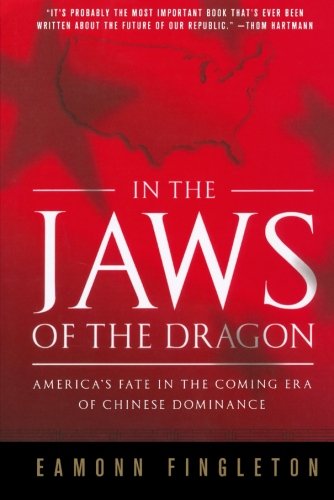◄►◄❌►▲ ▼▲▼ • BNext New CommentNext New ReplyRead More
Given recent concerns for the future of jobs at places such as Longbridge, Dagenham and now Nissan in Sunderland, it is past time Britain diagnosed the real reasons for the erosion of its manufacturing base.
One is the notion that in the digital age manufacturing no longer matters. Almost everyone who influences policy-making has come to believe manufacturing industries are inexorably destined to migrate to the second and third worlds. The strategy for Britain is said to be to withdraw as quickly and painlessly as possible and to move to supposedly more lucrative businesses in such fields as computer software, entertainment, and financial services.
That is a ludicrously superficial misreading of modern economic trends. The post-industrialists don’t understand what modern manufacturing is. To them, the archetypal form of manufacturing these days is the sort of low-grade work carried out in the sweatshops of the third world.
Sweatshops are highly unrepresentative of modern manufacturing in that they are extremely labour-intensive. With investment rates as high as $500,000 or more per worker, advanced areas of manufacturing in countries such as Germany, Japan, and Switzerland can be astoundingly capital-intensive. Typical of modern advanced manufacturing are the hi-tech factories that make the miniaturised components and ultra-pure materials used in the electronics industry.
A commitment to advanced manufacturing produces many benefits of which the most obvious is a wide range of jobs. Whereas post-industrial businesses provide jobs mainly for people among the most intelligent 10% of the population, even the most advanced areas of manufacturing provide jobs for people of almost every level of capability.
A second point for manufacturing, and particularly advanced manufacturing, is that it generally does far more for a nation’s balance of payments than do post-industrial businesses. Whereas post-industrial products typically entail a strong cultural element, most manufactured products are culture-neutral. This is particularly likely to be true of the higher levels such as production of hi-tech materials and components.
Manufacturing’s export strength is notably apparent in such electronic components as liquid crystal displays (LCDs). The Japanese, who dominate in this business, export as much as 80% of their output. The reason is clear: LCDs can be used without adaptation by consumers all over the world.
Contrast that with a typical post-industrial business such as computer software. Even mighty Microsoft’s exports from the United States account for only 25% of total sales, reflecting the fact that most of its products need substantial adaptation to fit the culture of foreign markets. An additional problem – shared by many other post-industrial businesses – is that its products are easily copied and therefore heavily pirated in many export markets.
A third advantage of advanced manufacturing is that it pays high wages. This is a reflection of the fact that its workers are typically backed by large amounts of capital and proprietary production knowhow. These greatly enhance workers’ productivity, and greater productivity is the royal road to higher wages.
The proof lies in international economic statistics. Almost without exception, countries with the highest per capita incomes are noted for their strong manufacturing bases. In particular, of the 13 countries that at last count exceeded Britain in wages at market exchange rates, all but two exceeded us also in the proportion of their workforces they devoted to manufacturing.
Even that ultimate exemplar of post-industrialism, the United States, has been losing out rapidly in the wages league table to manufacturing countries. With the dollar down dramatically on balance against most major currencies in the past 10 years, the US is now exceeded in wage rates by six countries: Japan, Switzerland, Germany, Sweden, Denmark and Austria. In each case, they devote a much larger share of their workforces to manufacturing than does the US.
For Britain, the message is clear: the way forward for manufacturing is to increase its capital intensity and knowhow intensity. On both counts, policymakers can do much to help. But they probably will not do so if they continue to imagine manufacturing is yesterday’s business.
Eamonn Fingleton is author of In Praise of Hard Industries: Why Manufacturing, Not the Information Economy is the Key to Future Prosperity, published by Orion Books

 RSS
RSS









